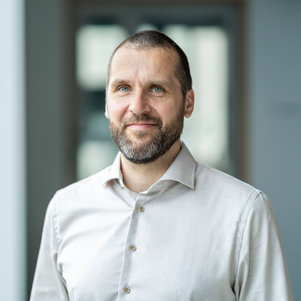Inaugural address: Powerful design capabilities crucial for addressing societal challenges
On Friday, 13 September, Professor Matthijs Langelaar will deliver his inaugural speech, Computational Design: Shaping the Future. In his address, Langelaar, who researches algorithms for solving mechanical design problems, emphasizes how advanced design capabilities can significantly contribute to addressing societal challenges.
From the train you commute on every day to the smartphone you constantly use—every part of these everyday objects is carefully designed, requiring countless hours of thought and calculation. As the demand for technological innovations grows, so does the complexity of products and their individual components. This results in increasingly complex design challenges, explains Matthijs Langelaar, Professor of Computational Design and Mechanics. He develops tools that provide faster and more efficient solutions to these complex problems.
Surprising designs
Langelaar cites the Flying V, an innovative aircraft designed by TU Delft, as an example. ‘Because of the completely new shape of the aircraft, the entire frame had to be redesigned, leading to numerous design challenges,’ he explains. For instance, the frame needed to be both lightweight and stiff—two seemingly contradictory requirements that are ideally suited for algorithmic solutions. While a team of designers might spend weeks searching for the optimal design, an algorithm can achieve the same result within a day. Furthermore, algorithms are capable of discovering out of the box solutions and generating surprising yet efficient designs.
Algorithms are particularly valuable when designing parts for additive manufacturing, the industrial form of 3D printing. ‘This technology opens up many new possibilities for producing mechanical components, as it allows us to realise a vastly broader range of shapes,’ Langelaar adds. A key focus of his research is how computational design can help fully exploit the form freedom offered by additive manufacturing, while also accounting for its limitations.
Co-design
However, Langelaar cautions that the algorithms are still far from perfect. ‘There are many challenges to overcome before computational design can be applied to every design problem.’ If these obstacles are addressed, computers could evolve into a kind of ‘super designer.’ But this doesn’t mean human designers will become obsolete. ‘Human designers will remain essential, although their role will shift. Algorithms still require clear instructions and settings. Additionally, algorithms are not infallible, so sound engineering judgment and critical evaluation will continue to be necessary. Instead of a takeover, I expect a closer collaboration between humans and computers.’
Design is everywhere
In his inaugural address, Langelaar discusses several practical examples and the challenges that lie ahead. He wants to remind his audience that the design of mechanical parts is all around us, though often taken for granted. ‘Behind every object we use daily lies a tremendous amount of effort. By advancing our design capabilities, we can empower many designers to better address increasingly complex societal challenges, such as sustainable mobility and the energy transition.’
Matthijs Langelaar's inaugural speech can be followed live on Friday 13 September starting at 15:00 via this link. The speech can be viewed afterwards via the same link.
